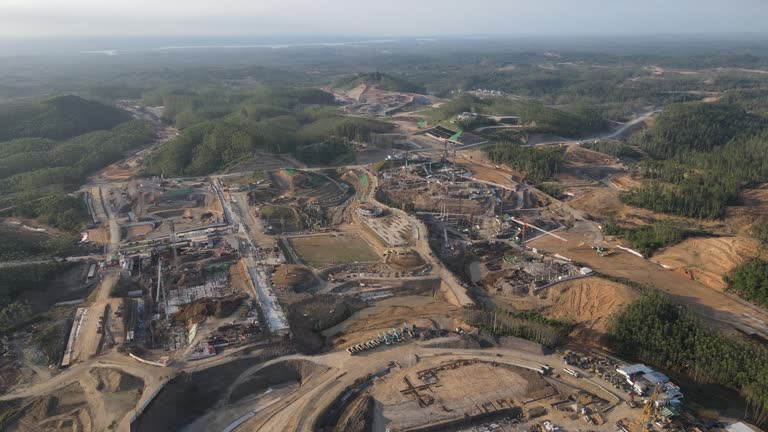The development of Indonesia’s new capital city, Ibu Kota Nusantara (IKN), continues despite falling short of its 2023–2024 investment target.
According to Dedek Prayudi, Spokesperson for the Presidential Communications Office, the IKN Authority only secured USD3.5 billion out of the USD6.1 billion target. However, President Subiyanto remains optimistic and committed to the project’s progress.
“The target will continue into 2025–2029, as outlined in the Medium-Term National Development Plan,” stated IKN Authority Spokesperson Troy Pantouw on Tuesday, January 14, 2025, as reported by Tempo.
Limited Reliance on State Budget
IKN’s development does not solely rely on the state budget (APBN). Former President Joko Widodo highlighted that the total budget for establishing the new capital city is USD28 billion, with only 20% sourced from the state budget. This means the maximum use of state funds is USD5.6 billion, while the remaining funding must come from private investments.
As of July 4, 2024, data from the Ministry of Public Works and Housing (PUPR) revealed that USD5 billion of the APBN had been allocated for IKN development. Dedek Prayudi, also known as Uki, remarked,
“Initially, 100% of IKN’s funding came from the state budget. Now, with the government’s commitment to IKN, both foreign and domestic investors are starting to show interest.” quoted Kompas.
Funding for IKN development is governed by Government Regulation (PP) No. 17 of 2022, which allows financing from both the APBN and other legal sources, such as private sector contributions, creative financing mechanisms, and special IKN taxes.
Basuki Hadimuljono, Head of the IKN Authority and former Minister of Public Works and Housing, explained that there are three main sources of financing: the state budget, private sector investments, and public-private partnerships (KPBU).
Over 500 Letters of Intent Received
Agung Wicaksono, Deputy for Funding and Investment at the IKN Authority, revealed that over 500 Letters of Intent (LoIs) from potential investors have been received, primarily from European entities.
“These LoIs include not only companies wanting to invest but also vendors and contractors offering their services. One example is Finland, which has submitted four LoIs, with one already formalized in a Memorandum of Understanding (MoU). Hopefully, this will lead to real investments,” Agung said on January 14, 2025.
The Finnish Ambassador to Indonesia, Timor Leste, and ASEAN, Pekka Kaihilahti, expressed interest in collaborating with the IKN Authority to develop smart city initiatives. Sweden is also reportedly eyeing investment opportunities, particularly in electric vehicles (EV).
Groundbreaking for Private Projects
Basuki disclosed plans for five new private projects during the ninth groundbreaking phase. These projects include offices, hotels, restaurants, greening initiatives, and housing developments with one of them is Sojitz from Japan on a housing project.
The ninth groundbreaking, estimated at USD300 million in investments, is scheduled for January but awaits confirmation from President Prabowo Subianto.
Challenges in Attracting Foreign Investment
Several obstacles hinder foreign investment in IKN, Bahlil Lahadalia, Minister of Investment during President Joko Widodo’s administration, explained that foreign investors are waiting for the completion of the initial development phase before committing funds.
Meanwhile, Suryadi Jaya Purnama, a member of the House of Representatives (DPR) from 2019–2024, urged the government to reevaluate the IKN project. He highlighted unresolved issues, including the allocation of 2,086 hectares of land.
According to Suryadi, investors are hesitant due to the project’s public infrastructure and its limited population. While to be profitable, the population must reach at least 5 million within 10 years.
Additionally, advanced economies often adhere to Environmental, Social, and Governance (ESG) standards, which discourage deforestation and negative social impacts on local communities. These factors further complicate the IKN Authority’s efforts to attract investment.
Source: tempo.co, kompas.com
Photo Credit: Berry Kusuma via Getty Images


